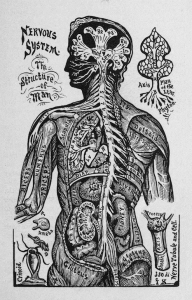DIABETES EMERGENCY KIT
AVEON HEALTH
Diabetes Experts
2020 has proven, if nothing else!, that life can be full of surprises, and that not all of them are pleasant in nature. As Diabetics we need to be aware of that, and, as a result, should make sure that we are as prepared for such situations as possible! With that thought in mind, it is probably a good idea that we purchase and stock an “Emergency Kit,” if you would, that would be able to help sustain us should an event occur that would alter our normal daily routine.
PREPARING THE BAG
Like expectant parents who pack their “Hospital Bag” in advance and have it in a handy place, so should we prepare our Emergency Kits. They don’t have to be anything extravagant, in fact a good gym bag works just fine. It should be durable and light-weight in its own right, so as to not add any additional strain when toting it around.
PACKING THE BAG
It is here that a little thought needs to take place as, theoretically, the contents can vary dependent on the individual’s needs. The things in our list, however, are pretty standard and probably should be included in everyone’s bag.
- An Extra Supply of Meds – We would suggest a minimum of 3-5 days-worth.
- An Extra Test Kit – Ensure that you have a goodly number of Test Strips and Lancets, as Stress can adversely effect Blood Sugar, mandating more frequent testing.
- Foot Care Products – Inasmuch as a Diabetics feet are one of their most vulnerable areas, it would be wise to make sure your bag includes a bar of soap; several soft towels and a container of Foot Lotion.
- Keep Glucose on Hand – Tablets and Gels are good, but a Glucose Pump might prove handy in extreme cases.
- Prepare a Medical History & Contact List – In the event, Heaven forbid!, that you are incapacitated where communication is concerned, these could prove invaluable to those who will be attending to you!
- Stock Snacks – Items with simple carbohydrates and sugars are especially good. This includes, but is not limited to, non-perishables such as dried fruit, dry cereal, nuts, seeds, trail mix, and/or whole-grain crackers.
- Water is a Must - Dehydration can be a problem for everyone, so having several bottles on hand is always a good idea.
As well as preparing an Emergency Kit, it might be a good idea to wear a Diabetes ID Bracelet. Should you be incapable of explaining your condition, such a bracelet will save precious time in allowing others to administer to your immediate needs.
We would suggest that you frequently rotate some of the consumables to ensure that they are always fresh and never “outdated.” Our hope, of course, is that no one ever needs to depend on their Emergency Kit, but we trust that you have one ready should you ever find the need for one. If you would like more insight as to what include in your Emergency Kit, please feel free to call the experts of AVEON HEATLH at 480-300-4663.
If you, or someone you know, needs help in managing their Diabetes, please call AVEON HEALTH at 480-300-4663 to make an appointment with a member of our staff and allow them to escort you down the path to an improved quality of life for you and your loved ones!
This Blog was written, in great part, with information gleaned from the following sources:
https://www.everydayhealth.com/hs/type-2-diabetes-care/diabetes-emergency-bag-pictures/











